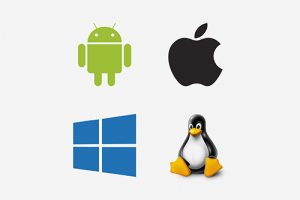 In 2004 the Munich, Germany city council voted to migrate city PCs away from Microsoft applications and operating systems and move to a version of open source Linux. It was a nine-year project that resulted in nearly 20,000 PCs being converted to an open source platform. They still have approximately 4,000 PCs running Windows for critical Windows based applications. The project was hailed as a success just last year, but there appears now to be question as to whether they are getting the cost savings and efficiencies they expected. Some are questioning whether ongoing application compatibility issues are worth continuing this push.
In 2004 the Munich, Germany city council voted to migrate city PCs away from Microsoft applications and operating systems and move to a version of open source Linux. It was a nine-year project that resulted in nearly 20,000 PCs being converted to an open source platform. They still have approximately 4,000 PCs running Windows for critical Windows based applications. The project was hailed as a success just last year, but there appears now to be question as to whether they are getting the cost savings and efficiencies they expected. Some are questioning whether ongoing application compatibility issues are worth continuing this push.
The city of Munich is beginning an Exchange migration away from open sourced Kolab, which was used for calendaring and email. It appears that an Outlook migration is in the works, opening the door to the beginning of a return to Microsoft products. A study is underway to determine the cost of moving city PCs to a Windows 10 platform. Informed by the study results, the city council will vote in November on whether to migrate back to Windows. Why the reversal? Is it impossible to run an open source environment that is compatible with other commercial applications? Does it take a special IT skillset to be successful? These are the questions going through my mind.
Politics
This is becoming a political issue as well as one of cost and productivity. The ruling party is pushing to move to Windows, citing employee dissatisfaction. The opposition party is moving to stay the course with Linux based systems in order to take advantage of the investment costs already incurred. To muddy the waters, there is also a question of IT efficiency and effectiveness. When the open source migration began after 2004, there was a parallel push to centralize IT from local organizations. They ended up centralizing into three IT functions and some employees claim that it is this centralization that is causing dissatisfaction with IT and not the open source software. The issues appear to run deeper than commercial vs. open source software.
Compatibility
I am a fan of open source software and would love to see a wide-scale installation succeed. The Munich migration, touted as “LiMux, The IT Evolution,” was one of the largest installations of open source software. With all of the finger pointing going on, it is unclear whether the problems lie with the Linux operating system, with open sourced applications such as OpenOffice, or with the IT organization. Because Linux and open source applications are not the predominant design in the world of IT, they will continue to play a minority role and will continue to have issues with compatibility. These are issues that we discuss at length in our innovations course. Open source is not the “safe play” by an IT department but can be cost effective and worth the time invested.
Thoughts
Are you using open source applications or operating systems in your organization? What are the tradeoffs, if any, between cost, ease of use, reliability and compatibility? Would you recommend open source applications and operating systems to others? Let me know your thoughts.
Kelly Brown is an IT professional and assistant professor of practice for the UO Applied Information Management Master’s Degree Program. He writes about IT and business topics that keep him up at night.



